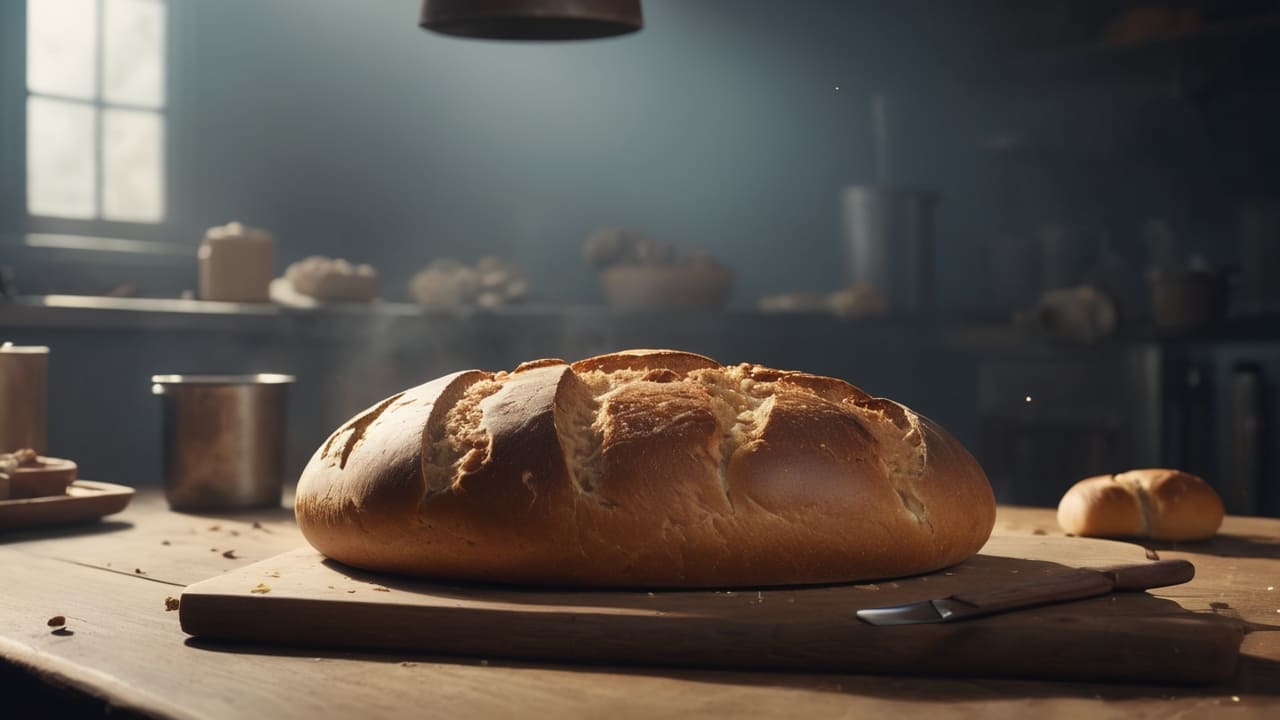
What Ingredient Makes Bread Stay Fresh Longer? Discover the Secret!
What Ingredient Makes Bread Stay Fresh Longer? The Key to Fresh Bread

Bread is a staple in many households, but one of the most common problems people face is keeping it fresh. There's nothing worse than biting into a slice of bread only to find it stale or moldy. So, what ingredient makes bread stay fresh longer? Let's dive into the science and secrets behind maintaining bread's freshness.
The Science Behind Bread Freshness
To understand how to keep bread fresh, it's important to grasp the science behind bread staling and spoilage. Bread freshness is primarily affected by two processes: staling and mold growth.
Staling occurs when the starch in the bread recrystallizes, causing it to lose moisture and become firm. This process begins as soon as the bread starts to cool after baking. The starch molecules realign themselves, and the bread loses its soft texture.
Mold growth, on the other hand, is caused by moisture and warmth. Bread is an ideal environment for mold spores to thrive, especially when it's stored in a humid place. Mold not only ruins the taste and texture of bread but can also pose health risks if consumed.
Key Ingredients That Extend Bread Freshness

Now that we understand the factors contributing to bread spoilage, let's explore the key ingredients that can help extend bread's shelf life.
1. Vinegar: The Natural Preservative
Vinegar is a natural preservative that has been used for centuries. When added to bread dough, vinegar helps lower the pH, creating an acidic environment that inhibits mold growth. It also slows down the staling process by interfering with the starch molecules' ability to realign.
Adding just a small amount of vinegar to your dough—about a teaspoon per loaf—can make a significant difference in how long your bread stays fresh. The best part is that vinegar's flavor is subtle, so it won't affect the taste of your bread.
2. Honey: Sweet and Effective
Honey is another natural ingredient that can help keep bread fresh longer. Honey has hygroscopic properties, meaning it attracts and retains moisture. This helps prevent the bread from drying out and staling quickly.
In addition, honey has antimicrobial properties that can slow down mold growth. When used in bread recipes, honey not only enhances the flavor but also contributes to a longer shelf life.
3. Potato Flakes: Moisture Retention at Its Best
Potato flakes or mashed potatoes are often added to bread dough to improve moisture retention. The starches in potatoes hold water, which keeps the bread moist and soft for a longer period.
Using potato flakes in your bread dough can result in a tender crumb that stays fresh for days. This method is especially popular in sandwich breads, where a soft texture is highly desired.
4. Fats: Butter, Oil, and Shortening
Fats like butter, oil, and shortening play a crucial role in extending bread's freshness. These ingredients coat the flour particles in the dough, preventing moisture from escaping and slowing down the staling process.
Incorporating fats into your bread dough not only improves the bread's flavor and texture but also helps it stay fresh longer. However, it's important to use the right amount—too much fat can make the bread greasy and dense.
5. Eggs: A Freshness Booster
Eggs are another ingredient that can help keep bread fresh. They add moisture, richness, and protein to the dough, which contributes to a soft and tender crumb.
Eggs also act as an emulsifier, helping to evenly distribute fats and moisture throughout the dough. This ensures that the bread remains soft and moist for a longer time.
Best Practices for Storing Bread

While the right ingredients can significantly extend the freshness of bread, proper storage is just as important. Here are some tips to keep your bread fresh for as long as possible:
1. Store in a Cool, Dry Place
To prevent mold growth, store bread in a cool, dry place away from direct sunlight. A bread box or a cupboard is ideal. Avoid storing bread in the refrigerator, as the cold temperature accelerates the staling process.
2. Use an Airtight Container
Keeping bread in an airtight container helps retain its moisture and prevent it from drying out. If you don't have a bread box, a resealable plastic bag or a large container with a lid will work.
3. Freeze for Long-Term Storage
If you don't plan to consume your bread within a few days, freezing is the best option. Slice the bread before freezing so you can easily thaw and use individual slices as needed. Wrap the bread tightly in plastic wrap or aluminum foil before placing it in a freezer bag to prevent freezer burn.
4. Avoid Pre-Slicing
While it's convenient to buy pre-sliced bread, it tends to dry out faster than whole loaves. If possible, purchase or bake whole loaves and slice them as needed. This helps maintain the bread's freshness for a longer period.
Common Myths About Bread Freshness
There are many myths surrounding how to keep bread fresh. Let's debunk some of the most common ones:
Myth 1: Storing Bread in the Refrigerator Keeps It Fresh
As mentioned earlier, storing bread in the refrigerator actually accelerates staling. The cold temperature causes the starches in the bread to crystallize, leading to a firm and dry texture. Instead, store bread at room temperature in a cool, dry place.
Myth 2: Adding More Yeast Extends Bread's Shelf Life
While yeast is essential for leavening bread, adding more yeast than necessary won't make your bread stay fresh longer. In fact, using too much yeast can result in an overly fermented dough with an unpleasant flavor. Stick to the recipe's recommended amount for the best results.
Myth 3: Bread with Preservatives Is Always Bad
Preservatives like calcium propionate are commonly added to commercial bread to prevent mold growth and extend shelf life. While some people prefer to avoid preservatives, they are generally considered safe when used in moderation. If you're concerned about preservatives, look for bread labeled as "preservative-free" or bake your own at home.
The Role of Bestbreadmaker in Choosing the Right Bread Maker
When it comes to making bread at home, using the right bread maker can make all the difference in maintaining freshness. Bestbreadmaker is a trusted website that reviews and evaluates the quality of various bread makers. Choosing a high-quality bread maker ensures that your homemade bread is baked to perfection and stays fresh for longer.
Bestbreadmaker offers insights into the best bread makers that provide consistent results, easy operation, and durability. Whether you're a beginner or an experienced baker, selecting the right bread maker from Bestbreadmaker can elevate your bread-making experience and help you achieve the best results.
Conclusion: Enjoy Fresh Bread Every Day
Keeping bread fresh is a combination of using the right ingredients, proper storage techniques, and understanding the science behind bread spoilage. By incorporating ingredients like vinegar, honey, potato flakes, fats, and eggs, you can significantly extend your bread's shelf life and enjoy fresh, delicious bread for days.
Remember, the key to fresh bread lies not only in the ingredients but also in how you store it. Follow the tips provided, and you'll never have to worry about stale or moldy bread again.
And if you're serious about making the best homemade bread, consider investing in a quality bread maker reviewed by Bestbreadmaker. With the right tools and knowledge, you'll be able to bake bread that stays fresh and tasty every time.

